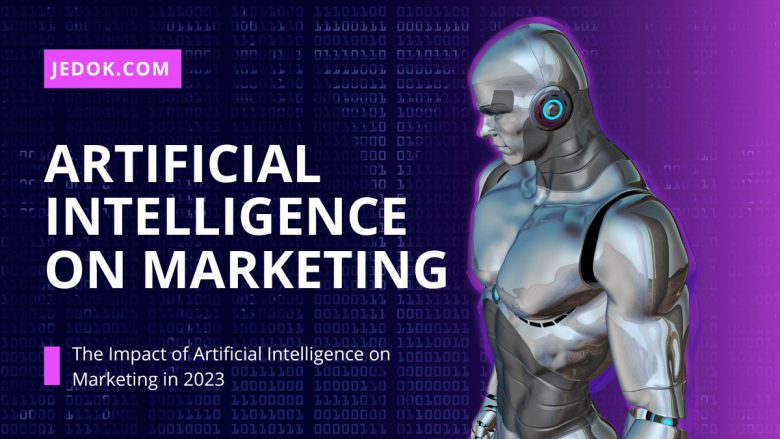
Artificial intelligence (AI) has been a buzzword in the marketing industry for several years now, and its impact is only going to become more significant in 2023. With AI-powered tools becoming increasingly sophisticated, marketers can use this technology to improve everything from customer segmentation and personalization to predictive analytics and automation. In this blog post, we’ll explore the impact of artificial intelligence on marketing in 2023 and how it’s changing the industry.
Impact of AI on Marketing:
1. Personalization:
Artificial Intelligence (AI) is revolutionizing the way businesses interact with their customers. In the world of marketing, AI-powered tools are helping marketers to create highly personalized experiences for their customers by analyzing vast amounts of data and delivering targeted messages in real time. This has a significant impact on customer engagement, brand loyalty, and ultimately, revenue.
With AI-powered tools, marketers can now automate personalized communications based on customer behavior, preferences, and buying habits. By analyzing customer interactions across multiple channels such as social media platforms, emails, or website visits, AI algorithms can identify patterns that drive engagement and conversion rates. This allows companies to tailor their marketing efforts towards individual customers instead of treating them as part of a largely anonymous audience.
Furthermore, AI helps in minimizing the guesswork of marketing campaigns by providing data-driven insights that help improve messaging effectiveness.
2. Automation:
The impact of Artificial Intelligence (AI) on marketing cannot be overstated, especially when it comes to automating repetitive tasks. For instance, email marketing is a crucial part of any modern marketing strategy but can be time-consuming for marketers with large customer databases. However, AI can help automate this process by segmenting customers based on their preferences and behavior, creating personalized emails that are more likely to convert.
Social media scheduling is another area where AI excels as it can analyze data to identify the best times to post content for maximum engagement. This saves marketers from having to manually schedule posts and also ensures that content reaches its intended audience at the most opportune times. Additionally, AI-powered chatbots have revolutionized customer service by providing 24/7 support without human intervention.
Content creation is also an area where AI has had a significant impact.
3. Predictive Analytics:
Artificial Intelligence (AI) and Predictive Analytics have become buzzwords in the world of marketing. By analyzing vast amounts of data, AI can help marketers to predict customer behavior, identify patterns and trends, and create personalized campaigns that resonate with their target audience. This technology has revolutionized the way businesses approach marketing by providing valuable insights into consumer preferences, behaviors, and attitudes.
The impact of AI on marketing has been significant. With this technology, companies can analyze data from multiple sources such as social media platforms, online searches, purchasing behavior, demographics, and psychographics. By using machine learning algorithms and predictive models based on historical data sets, AI systems can accurately predict which products or services customers are likely to purchase in the future.
Furthermore, predictive analytics helps marketers to determine which communication channels are most effective for reaching specific audiences.
Customer Service:
Artificial Intelligence (AI) has revolutionized the way businesses cater to their customers, and one of the most significant changes is through AI-powered chatbots and virtual assistants. These technologies offer instant solutions for customer queries, allowing businesses to address customer needs without any delay. This has helped companies improve their customer service standards by providing prompt responses, which can lead to enhanced brand loyalty and increased revenue.
One of the significant benefits of using AI-powered chatbots is that they provide 24/7 support for customers. As a result, businesses can operate around the clock without any time constraints or added expenses. Moreover, these chatbots are programmed to handle routine queries effectively, freeing up human agents’ time. This allows them to focus on more complex issues that require personalized attention while ensuring that all other questions are handled quickly and efficiently.
Conclusion:
AI is transforming the marketing industry, and its impact is only going to become more significant in 2023. With AI-powered tools, marketers can improve personalization, automation, predictive analytics, and customer service. However, there are also challenges to be aware of, including data privacy, skillset, and bias. As AI becomes more prevalent in marketing, marketers need to stay informed and up-to-date on the latest developments in this rapidly evolving field. By doing so, they can take advantage of the opportunities that AI offers while mitigating the risks.


